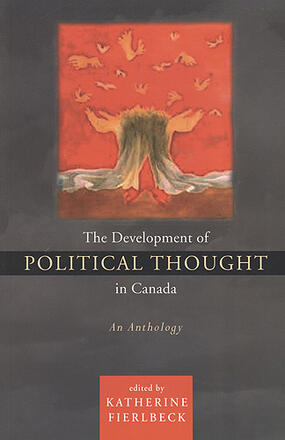
The Development of Political Thought in Canada
An Anthology
Description
Contemporary Canadian political thought is fresh, provocative, and ubiquitous. But how can we explain the popularity of the present within the context of the past? The premise of this book is that Canada’s intellectual heritage is disappearing from the consciousness of its citizens. For contemporary undergraduates there is no one source in print that presents an historical survey of Canadian political thought. Indeed, many undergraduates are never introduced to even the most iconic figures in political thought in this country, such as C. B. Macpherson, Kari Levitt, or George Grant. And for the wider audience of reflective and thoughtful Canadians outside of the universities, there is little guidance in understanding how the abstract political debates surrounding such issues as health care, foreign policy, or asymmetrical federalism evolved. Few are cynical enough to believe that all major political decisions are based solely on an expression of political opportunism. But what confluence of political ideas permitted the implementation of real political achievements?
This book presents selections of Canadian political thought from the nineteenth century to the present to show how ideas evolved over time to influence the values and debates of modern Canadians. The readings are generally arranged chronologically, but the three currents of thought that inform the selections are Canada’s relation to the United States, English Canada’s relationship with French Canada, and the nature of a "Canadian" social justice.